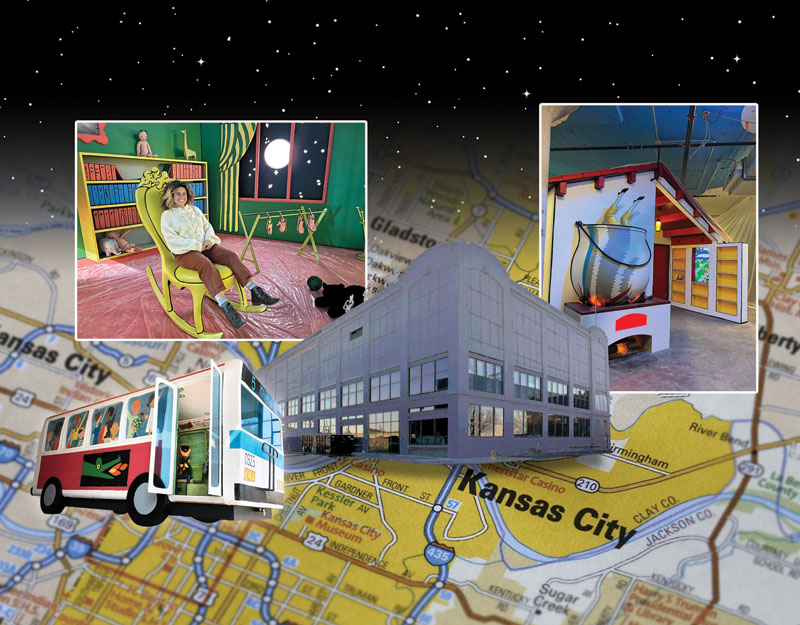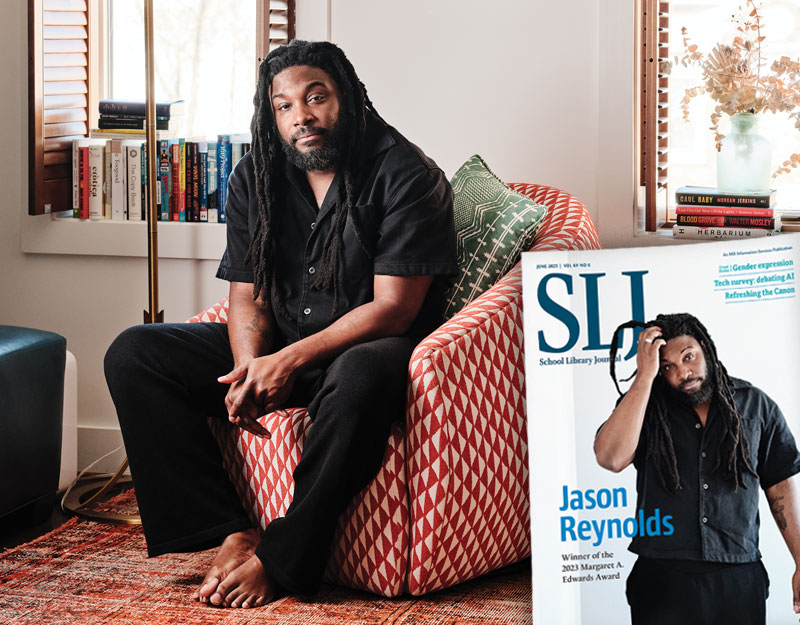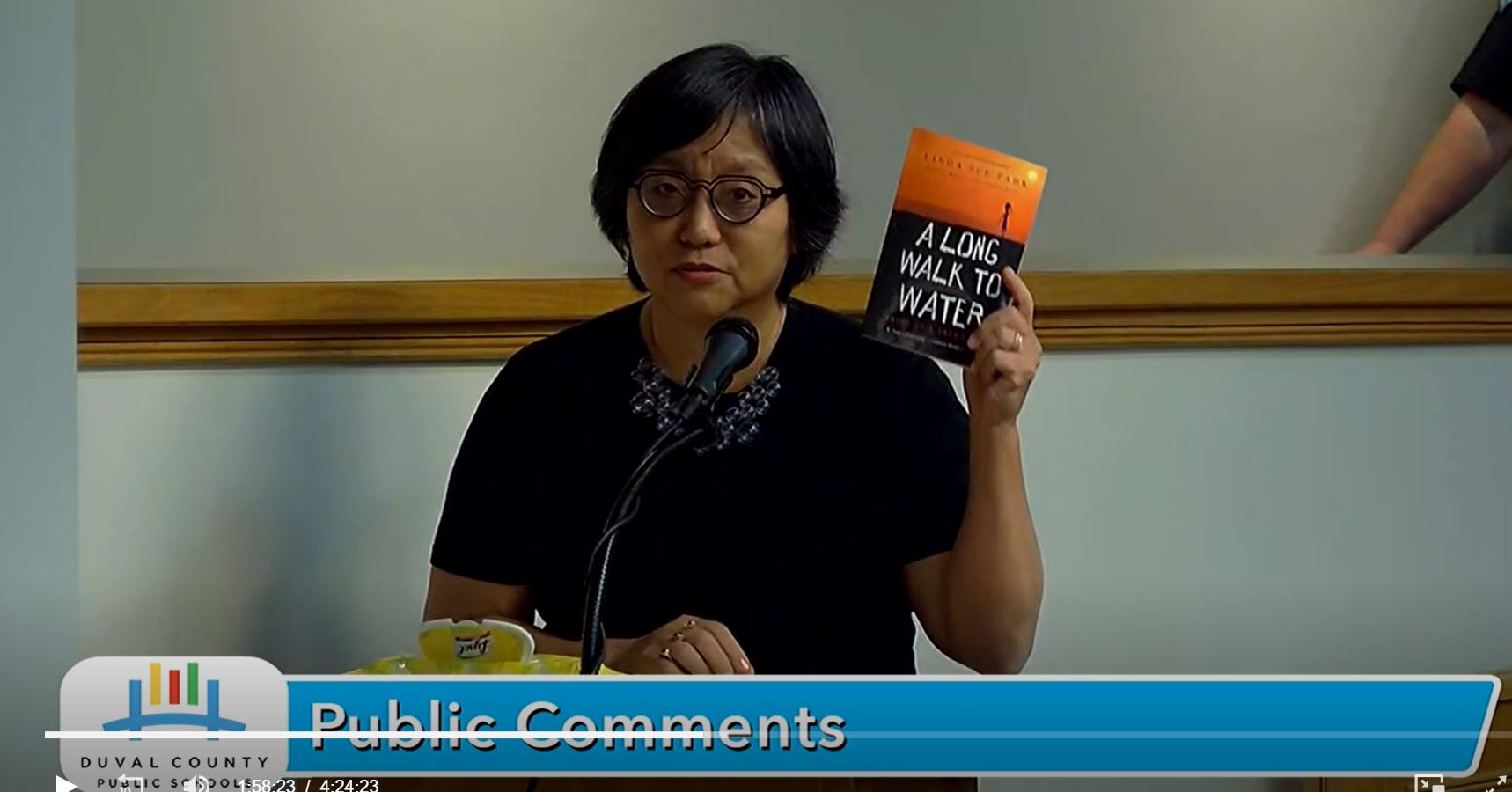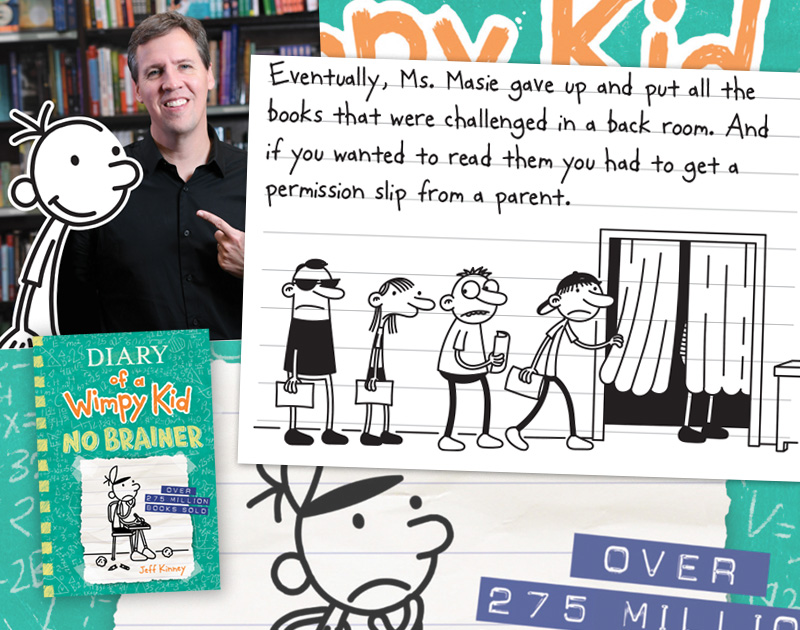WBBT Interview – Francis O’Roark Dowell
 I was not the only one to become a fan of Frances O’Roark Dowell’s magnificent middle grade novel Shooting the Moon this year. But neither was I under the impression that it was created in a vacuum. Over the years Ms. Dowell has written everything from fun boy-centric early chapter books to mysteries and realistic fiction. In Shooting the Moon, Ms. Dowell brings together historical fiction, photography, and Vietnam, and turns it into a cohesive whole. An honor book in the 2008 Boston Globe-Horn Book Awards, it was reason enough for me to want to speak to Ms. Dowell about her work, process, and a very exciting sounding sequel!
I was not the only one to become a fan of Frances O’Roark Dowell’s magnificent middle grade novel Shooting the Moon this year. But neither was I under the impression that it was created in a vacuum. Over the years Ms. Dowell has written everything from fun boy-centric early chapter books to mysteries and realistic fiction. In Shooting the Moon, Ms. Dowell brings together historical fiction, photography, and Vietnam, and turns it into a cohesive whole. An honor book in the 2008 Boston Globe-Horn Book Awards, it was reason enough for me to want to speak to Ms. Dowell about her work, process, and a very exciting sounding sequel!
Fuse #8: Your most recent novel is Shooting the Moon, a tale of Vietnam and photography (you can see where my priorities lie). Did the current political situation and war we find ourselves in right now influence your desire to write this story in any way, or did you have other reasons for creating it?
Frances Dowell: The genesis of Shooting the Moon was this: I wrote a lousy book and was depressed about it. My husband, trying to be helpful and supportive, suggested I write a book about an Army brat whose brother is a conscientious objector. I smiled and said, “Yes, dear,” then filed his idea away under “Things Other People Think I Should Write About and I Never Will” (a very thick file). But for some reason it stayed with me. In the early drafts, the Dexters were stationed in Bad Kreuznach, Germany (where I lived when I was in junior high school) and TJ did indeed declare himself a conscientious objector, but that ultimately didn’t pan out, so I brought them back Stateside and had TJ enlist.
Though we were in Iraq by the time I started writing Shooting the Moon, the Iraq War wasn’t a trigger for the story, at least not consciously. Had it been, it probably would have been ruinous. If I’d sat down to write a book to let children know that war is wrong (and I do think the war in Iraq is wrong), I would have been writing propaganda. Propaganda makes for lousy fiction and poetry.
 Fuse #8: I’ve been privy to some discussions that bring up the end of the novel. Some people, like myself, are keen on the way you chose to close it. Others would have liked more of an ending with straightforward closure. Without necessarily giving away the ending (since I don’t want to ruin the ending for those who haven’t read the book yet) why did you choose to end the book the way you did?
Fuse #8: I’ve been privy to some discussions that bring up the end of the novel. Some people, like myself, are keen on the way you chose to close it. Others would have liked more of an ending with straightforward closure. Without necessarily giving away the ending (since I don’t want to ruin the ending for those who haven’t read the book yet) why did you choose to end the book the way you did?
ADVERTISEMENT
ADVERTISEMENT
Dowell: You know, it’s been a real surprise to me how many people take umbrage with the ending! They find it abrupt. I can see what they’re saying, but I’m not sure I’d do things differently if give the chance. I think the ending gives enough information so that the reader is not left hanging—you know how things ultimately turn out. The book ends with an image, really, of Jamie, her parents, and Private Hollister playing cards. Maybe it’s the poet in me that wants to end with an image. Look at it this way—it’s a book about photographic images, images of the moon, of wounded soldiers, of war. So the last image is of a family passing time while they wait. Which is what the families of soldiers do. I don’t know how they bear it.
Fuse #8: As a former photography major I was keen on the darkroom moment recorded in the book. Are you a photographer yourself or do you happen to have some connection to it that inspired you to include it in the title?
 Dowell: When I was in seventh grade, a friend taught me how to develop and print film down at the Army rec center in Bad Kreuznach. That’s about the extent of my darkroom experience, but I clearly remember sitting in that pitch black closet trying to get the film out of its cartridge and into the processing canister. I’m amazed I didn’t ruin more film than I did. The best part of the process was dipping the paper into the chemical bath and watching the image develop. Magic!
Dowell: When I was in seventh grade, a friend taught me how to develop and print film down at the Army rec center in Bad Kreuznach. That’s about the extent of my darkroom experience, but I clearly remember sitting in that pitch black closet trying to get the film out of its cartridge and into the processing canister. I’m amazed I didn’t ruin more film than I did. The best part of the process was dipping the paper into the chemical bath and watching the image develop. Magic!
My husband is a documentary photographer, and he’s the one who provided me with the technical details and read through what I’d written to make sure I’d gotten it right.
As for the title, my original title for the book was Knock. Jamie and Private Hollister play a lot of gin rummy throughout the book, and in gin rummy you knock when you’re ready to count points. I liked it, but the marketing folks thought it sounded too YA, and I suppose they were right. It was my editor, Caitlyn Dlouhy, who came up with Shooting the Moon, which is lovely and of course ties into the photography aspect of the story, as you noted.
Fuse #8: Did you have any sense of where the book was going to go when you started writing it? Some authors diagram out every plot turn, emotional tug of the heart, and characterization to the minutest detail. Others let the book lead them. What’s your particular process?
Dowell: I never know what’s going to happen, which is why first drafts are such a heartache for me. I fly blind. It’s a hard way to write, but ultimately—for me at least—yields the most interesting results. If I know what’s going to happen, I’m not that interested in writing the story.
So my process is this: I get a triggering idea, in this case “Army Brat/Vietnam War.” If the book is in the first person, I start trying to figure out my narrator’s voice. Voice is important to me. One of the things I like about living in the south is that people’s talk is not yet completely homogenized by TV (especially up in the mountains). Oh, when enough grannies die out, it’ll happen here, too, but you still hear a lot of good talk. Anyway, it’s important for me to find a voice. Then I let the narrator talk for awhile and introduce the story a little bit. I spend a lot of time on the first three or four paragraphs, so I can get the rhythm of the narrator’s voice in my head.
I get the story set up, and then I spend several months coming up with the most stupid, convoluted plot you can think of. A plot that cannot be executed with any dignity or self-respect, and yet I make the attempt. Then, after I’ve come up with my unrealistic, reality-defying, overwhelmingly dumb conclusion, I send this wretched attempt at a novel to my editor.
Fortunately for me, Caitlyn is a genius and always finds the right questions to ask to get me on the right track. She claims I am one of the great revisers of children’s literature, but the fact is, my first drafts are so bad, I have no where to go but up. My second drafts are always resurrections. It helps to have this champion editor who guides me and gives me gentle hints and nudges and sends chocolate. So my second drafts are inevitably much better, and I usually get things figured out by the third draft.
Fuse #8: Unlike some authors the only books I’ve seen you create sequels to are the Phineas L. MacGuire series for younger readers. Have you ever felt an inclination to write a sequel to something like Chicken Boy or Dovey Coe or even Shooting the Moon?
 Dowell: I actually am about to publish a sequel to The Secret Language of Girls. It’s called The Kind of Friends We used to Be, and it will be out in January 2009. In general, I’m not enthusiastic about the notion of writing sequels to “stand alone” books. With most novels, the magic comes from combining a particular group of characters with a particular set of circumstances. When you take the same group of characters and confront them with another set of circumstances, the story isn’t always as compelling. There are exceptions to this, of course. For instance, I love Cythia Voight’s Tillerman Cycle.
Dowell: I actually am about to publish a sequel to The Secret Language of Girls. It’s called The Kind of Friends We used to Be, and it will be out in January 2009. In general, I’m not enthusiastic about the notion of writing sequels to “stand alone” books. With most novels, the magic comes from combining a particular group of characters with a particular set of circumstances. When you take the same group of characters and confront them with another set of circumstances, the story isn’t always as compelling. There are exceptions to this, of course. For instance, I love Cythia Voight’s Tillerman Cycle.
Kids always ask if I’m going to write a sequel to Dovey Coe. I point out to them that she lives in a small town where not much happens. Realistically speaking, there’s only going to be one big murder a generation. I can’t go killing off the rest of the town just to make readers happy. It ain’t right. But it’s that sort of high drama that draws kids into Dovey Coe and that they’d expect in a sequel. Call it a contract that Dovey Coe makes with its readers.
ADVERTISEMENT
ADVERTISEMENT
Now, recently a kid suggested I could do a sequel about Dovey’s brother, Amos, and I thought that was a good idea. I won’t do it, but of all the suggestions kids have given me, that was the best one.
Fuse #8: Dreaded questions that no one likes to be asked: Whatcha working on now?
Dowell: Weirdly enough, a fantasy. Well, Caitlyn calls it a light fantasy, and that sounds about right to me. No wizards or trolls or magical beings. Like a lot of kids—and every kid who ever read The Lion and the Witch and the Wardrobe—I loved the idea that you could open a door and walk into an entirely different world. My older brother and I used to tell my younger brother that there was a carnival underneath our house, and that at night, after he went to bed, we’d go into the family room closet and crawl through the secret passageway and spend all night eating cotton candy and riding the Ferris wheel. I asked my younger brother a couple of years ago if he remembered us telling him about the carnival under the house, and he said, “Remember it? I used to dream about it.”
Anyway, in this new book, a girl named Isabelle opens up the closet door in the school nurse’s office and falls into another world. As she has always been convinced that she’s a changeling, she assumes she’s been called back to her true and proper home. She is halfway right and a good deal mistaken.
In any event, I’ve just finished the second draft, and know there’s another draft to go (at least), but I have to say I’ve had so much fun working on this. It’s in third person, which is liberating for a first-person type such as myself. I’ve played around a lot and tried to make sure that no important lessons about life are learned.
Thanks so much to Ms. Dowell for answering my questions. Be sure to read more of her books if you get a chance. This is an author worth watching.
Filed under: Uncategorized
About Betsy Bird
Betsy Bird is currently the Collection Development Manager of the Evanston Public Library system and a former Materials Specialist for New York Public Library. She has served on Newbery, written for Horn Book, and has done other lovely little things that she'd love to tell you about but that she's sure you'd find more interesting to hear of in person. Her opinions are her own and do not reflect those of EPL, SLJ, or any of the other acronyms you might be able to name. Follow her on Twitter: @fuseeight.
ADVERTISEMENT
ADVERTISEMENT
SLJ Blog Network
The Moral Dilemma of THE MONSTER AT THE END OF THIS BOOK
K is in Trouble | Review
Fighting Public School Book Bans with the Civil Rights Act
ADVERTISEMENT








I had read this book based on your recommendation and thoroughly enjoyed it. Thanks for the interview, now I have more background on the author and her process. Will probably seek out her fantasy title when it comes out- sounded just my speed.
What a fabulous-sounding book, and I love how she has such pithy statements for things: Propaganda makes lousy fiction. Indeed! I think it’s great that she can describe her process, even when she doesn’t feel like she has one.
And yes, the file of Things Other People Think I Should Write About is indeed quite bulky!!
Great interview. Shooting the Moon was one of my favorite books this year. Such a comfort to know Ms. Dowell suffers through first drafts like the rest of us regular authors!
Wonderful interview. I esp. liked the part about her process and draft-writing. What I feel I have to say though, is that the cover on the new book is fantastic!
SHOOTING THE MOON is one of my favorite books of the year. And Francis O’Roark Dowell has some of the best first lines of anyone writing for young people today. Thanks for giving us a closer look at her process.
dovey coe is as good as fudge sickels!I love it.I hope to read more off your books.
Dovey Coe is a really good book!! I hope to read on in the book!! I can’t wait till I finsh the book!!
Read your recent review of “The Kinds of Friends We Used to Be,” and now I’m hooked on FOD. Love her characters, adore the turns of phrase. Thanks for your interview — it’s wonderful to read more about this talented writer.
Can any one tell me the setting of the shooting the moon book i cant find it its for school im 7th grader